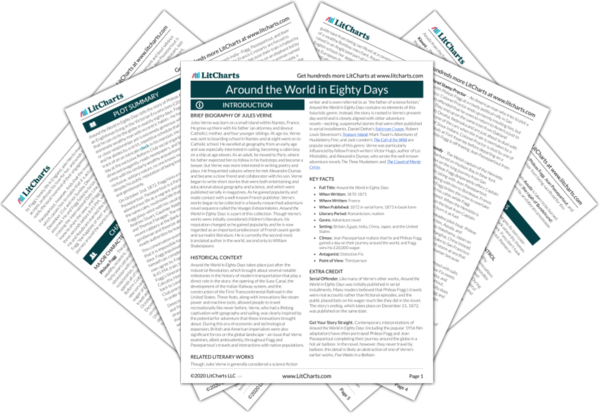Previous
Parsee
|
Previous
Parsee
|
Brahmin Term Analysis |
Next
Symbols
|
“Suppose we save this woman.”
“Save the woman, Mr. Fogg!”
“I have yet twelve hours to spare; I can devote them to that.”
“Why, you are a man of heart!”
“Sometimes,” replied Phileas Fogg, quietly; “when I have the time.”

Unlock explanations and citation info for this and every other Around the World in Eighty Days quote.
Plus so much more...
Get LitCharts A+